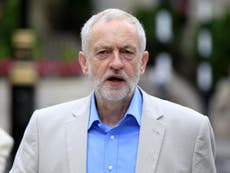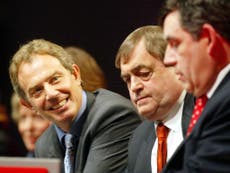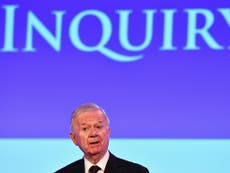Are our MPs really saying we should have left the citizens of Libya to their fate?
The suggestion that David Cameron should have waited to see what Gaddafi did next undermines the credibility of this report – which is a pity, because most of its other recommendations are sensible


The report of the Foreign Affairs Committee of MPs on Libya (the conclusions are here) seems to be another classic example of the wisdom of hindsight. Some of its observations are wise enough, and echo the findings of the Chilcot report on Iraq. Once again, the British Government seems to have failed to anticipate the consequences of military intervention in a Muslim country.
But the intervention in Libya was different from that in Iraq. It was a response to the immediate threat to civilians in Benghazi from Colonel Gaddafi, the Libyan ruler. The committee criticises David Cameron’s Government, saying: “It could not verify the actual threat to civilians posed by the Gaddafi regime; it selectively took elements of Muammar Gaddafi’s rhetoric at face value.”
This seems a reckless judgement. Gaddafi spoke of ridding Benghazi of “rats and cockroaches” and said: “There will be no mercy … We will come house by house, room by room; we will find you in your closets.”
Are the MPs really saying that Nato’s response should have been, “We don’t believe you”?
Surely the committee should have recognised the echoes of Rwanda and Srebrenica and praised Cameron, and Nicolas Sarkozy, for erring on side of trying to avert a massacre? How can they possibly say that Cameron should have waited to see if Gaddafi meant what he said or had the means to turn his words into action because in the long run the consequences of intervention might be worse?
This finding undermines the credibility of the rest of the report. Which is a pity, because most of its other recommendations seem sensible. It might have been better to have paused, after air strikes removed Gaddafi’s ability to attack Benghazi, to have tried harder – even using Tony Blair’s connections with the Gaddafi family, as the MPs suggest – to have brokered a political settlement.
The committee rightly observes that an intervention with a limited humanitarian objective slid into an operation to support the ousting of Gaddafi. But it might not have been possible to have prevented that mission creep.
Even so, the report makes the mistake that is typical of hindsightism: that of assuming that there is an institutional fix for bad decisions. Cameron was proud of setting up the National Security Council (NSC) in 2010 as a response to the supposedly informal decision-making of Blair’s government on Iraq. He had fallen for the myth of “sofa” government which, as Jonathan Powell, Blair’s chief of staff, said, was to confuse a decision with which people disagreed with an item of furniture.
Now the Foreign Affairs Committee finds that the NSC didn’t work in the way it should have done – that is, that it came to conclusions with which the committee, with the benefit of hindsight, disagrees. “The Government must commission an independent review of the operation of the NSC,” the report says. Another inquiry? Give us a break.
Beyond the basics of consultation and record-keeping, which all British governments observe, bad decisions cannot be designed out of politics by procedure. The lesson that politicians and officials should learn, from Libya, Iraq and other quagmires, is that they need to be pessimistic about the worst that could happen.
Not that Sir Alan Duncan, who was then an international development minister, needed to learn that. When he was presented with some post-conflict plans by his department, he told the committee: “I recall writing on the ‘Advice to Ministers’: ‘Fanciful rot’.”






Join our commenting forum
Join thought-provoking conversations, follow other Independent readers and see their replies